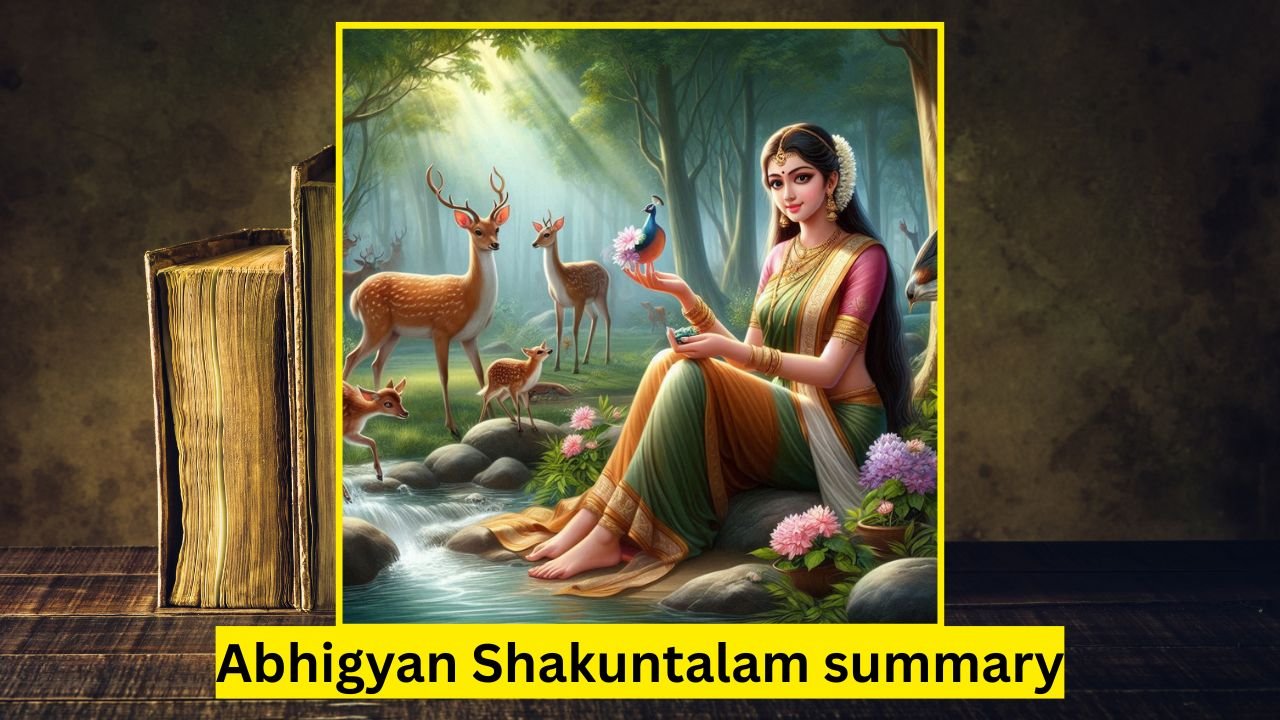“Abhigyan Shakuntalam” is a famous Sanskrit play written by the ancient Indian poet and playwright Kalidasa. The play is considered one of the greatest works of Indian literature and is renowned for its poetic beauty and emotional depth.
The story of “Abhigyan Shakuntalam” revolves around the love between King Dushyanta and Shakuntala, who is a young woman raised in a hermitage by the sage Kanva. Dushyanta, while on a hunting expedition, encounters Shakuntala in the forest and is instantly captivated by her beauty and charm. They fall in love and decide to get married through a secret ceremony.
However, fate intervenes when Dushyanta is called back to his kingdom and must leave Shakuntala behind. Before leaving, he gives her a signed ring as a token of his love and promises to send it to her soon. Shakuntala, deeply in love and longing for Dushyanta, is often lost in her thoughts and neglects her duties, causing her to incur the wrath of a sage named Durvasa.
Abhigyan Shakuntalam
Durvasa curses Shakuntala, causing Dushyanta to forget about her existence. Heartbroken, Shakuntala is eventually discovered by a fisherman who finds her lost ring in the belly of a fish. The ring serves as a reminder of her love and marriage to Dushyanta.
Later, a series of events lead Dushyanta to regain his memory and he sets out in search of Shakuntala. He finally finds her, along with their son Bharata, in the hermitage. However, Shakuntala, hurt by Dushyanta’s forgetfulness, initially refuses to acknowledge him. Eventually, their love is rekindled, and they reunite as a family.
“Abhigyan Shakuntalam” explores themes of love, separation, fate, and the power of memory. It is known for its lyrical language, vivid descriptions of nature, and profound insights into human emotions. The play has been adapted into various forms of art and has had a significant influence on Indian literature and culture.
The reunion of Dushyanta and Shakuntala in “Abhigyan Shakuntalam” brings joy and happiness to both of them. Dushyanta acknowledges his forgetfulness and seeks forgiveness from Shakuntala, who ultimately forgives him. They express their deep love and commitment to each other, vowing to remain together forever.
The play also delves into the bond between parents and children. Bharata, the son of Dushyanta and Shakuntala, plays a significant role in the later part of the story. He grows up to be a wise and virtuous prince, and his name later becomes synonymous with India as the country itself is called “Bharatvarsha” in his honor.
“Abhigyan Shakuntalam” is not just a love story but also explores the complexities of human relationships and the consequences of actions. It emphasizes the importance of memory and the significance of recognizing and cherishing the connections we forge in life.
Kalidasa’s poetic genius shines through the play with his exquisite use of metaphors, imagery, and evocative language. The dialogues between the characters are filled with emotional depth and philosophical insights, capturing the essence of human experiences and emotions.
“Abhigyan Shakuntalam” has had a profound influence on Indian literature, theater, and arts. It continues to be celebrated for its timeless themes and its ability to resonate with audiences across cultures and generations.
The play serves as a reminder of the enduring power of love, the strength of forgiveness, and the beauty of relationships, making it a cherished masterpiece of world literature.
